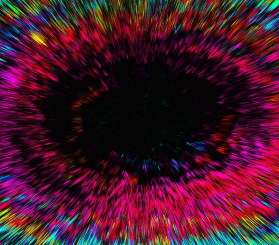Yes, OCD is often associated with anxiety and was historically classified as an anxiety disorder. However, in the most recent edition of the Diagnostic and Statistical Manual of Mental Disorders (DSM-5), published by the American Psychiatric Association, OCD was moved to its own category called “Obsessive-Compulsive and Related Disorders.”
Why the Change?
Distinct Features: While OCD involves significant anxiety, it also has distinct features such as the presence of obsessions (intrusive, unwanted thoughts) and compulsions (repetitive behaviors or mental acts). These characteristics differentiate it from other anxiety disorders like generalized anxiety disorder or panic disorder.
Overlap with Related Conditions: The new category in DSM-5 includes disorders that share similarities with OCD, such as body dysmorphic disorder, hoarding disorder, trichotillomania (hair-pulling disorder), and excoriation (skin-picking) disorder. This reflects the broader range of symptoms and behaviors beyond just anxiety.
Connection with Anxiety
Despite being in a separate category, OCD is still strongly related to anxiety. Obsessions often provoke significant anxiety or distress, which individuals attempt to neutralize with compulsive behaviors.
Clinical Implications
This reclassification helps clinicians better differentiate between conditions and choose the most appropriate treatments, as OCD and anxiety disorders can respond differently to specific therapeutic approaches and medications.
In summary, while OCD is no longer classified as an anxiety disorder, anxiety remains a core component of the condition.
How common is OCD?
Obsessive-Compulsive Disorder (OCD) is relatively common. The prevalence of OCD varies slightly across different studies and populations, but here are some general statistics:
Global Prevalence
- Lifetime Prevalence: Approximately 2-3% of the global population will experience OCD at some point in their lives.
- 12-Month Prevalence: About 1-2% of people are affected by OCD in any given year.
Demographic Factors
- Age of Onset: OCD often begins in childhood, adolescence, or early adulthood. The average age of onset is around 19 years, but it can start earlier, especially in males.
- Gender: OCD affects males and females at roughly equal rates in adulthood. However, in childhood, boys are more likely to be affected than girls.
Impact and Recognition
- OCD is often underdiagnosed and undertreated due to stigma, lack of awareness, or misunderstanding of the symptoms.
- Many people with OCD may not seek help until the disorder significantly impacts their daily functioning, often leading to a delay in diagnosis and treatment.
Treatment Access
Despite being a common and treatable condition, many individuals with OCD do not receive adequate treatment, either due to lack of access to mental health services or because the condition is not recognized and addressed appropriately by healthcare providers.
Overall, while OCD is a common mental health condition, awareness and access to effective treatments are crucial for improving the quality of life for those affected.
Here are a few other stats about the prevalence of OCD:
- OCD is the 4th most common mental illness
- OCD affected more adult women in the US than men in the past year (1.8% vs 0.5%).
- 2.3% of adults in America will struggle with OCD in their lifetime.
- 30% of adults diagnosed with OCD described having symptoms as a child.
- The average age of onset for OCD is 19 years old.
How is OCD treated?
Obsessive-Compulsive Disorder (OCD) is typically treated using a combination of therapy, medication, or both. The most effective treatments include:
1. Cognitive-Behavioral Therapy (CBT)
- Exposure and Response Prevention (ERP): This is the most effective form of CBT for OCD. It involves gradually exposing the person to their feared thoughts or situations while preventing the associated compulsive behaviors. Over time, this helps reduce the anxiety and the compulsion to perform rituals.
- Cognitive Therapy: This focuses on challenging and changing the irrational beliefs and thought patterns that drive obsessive thinking.
2. Medication
- Selective Serotonin Reuptake Inhibitors (SSRIs): These are the first-line medications for OCD. Common SSRIs include fluoxetine, sertraline, and fluvoxamine.
- Tricyclic Antidepressants (TCAs): Clomipramine, a type of TCA, is also used for treating OCD, especially if SSRIs are not effective.
Medications are often used in combination with therapy and can take several weeks to show effects.
3. Combination Therapy
Combining ERP with medication is often more effective than either treatment alone, especially for moderate to severe cases.
4. Alternative and Adjunctive Treatments
- Mindfulness and Acceptance Therapy: These can help individuals cope with distressing thoughts and reduce the compulsion to perform rituals.
- Deep Brain Stimulation (DBS): This is considered for severe cases that do not respond to conventional treatments. It involves surgically implanting electrodes in specific areas of the brain.
- Transcranial Magnetic Stimulation (TMS): A non-invasive procedure that uses magnetic fields to stimulate nerve cells in the brain and is being explored as a treatment for OCD.
5. Support and Education
- Support Groups: Joining a support group can provide a sense of community and shared experience.
- Family Education: Educating family members can help them understand the condition and provide better support.
6. Lifestyle Changes
- Regular exercise, adequate sleep, and stress management techniques can also support treatment.
Treatment is highly individualized and often requires a multi-disciplinary approach, including therapists, psychiatrists, and primary care physicians, to effectively manage the disorder.








